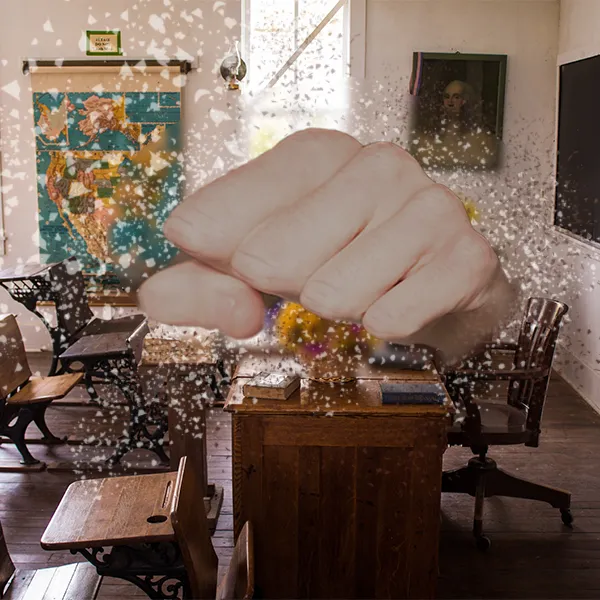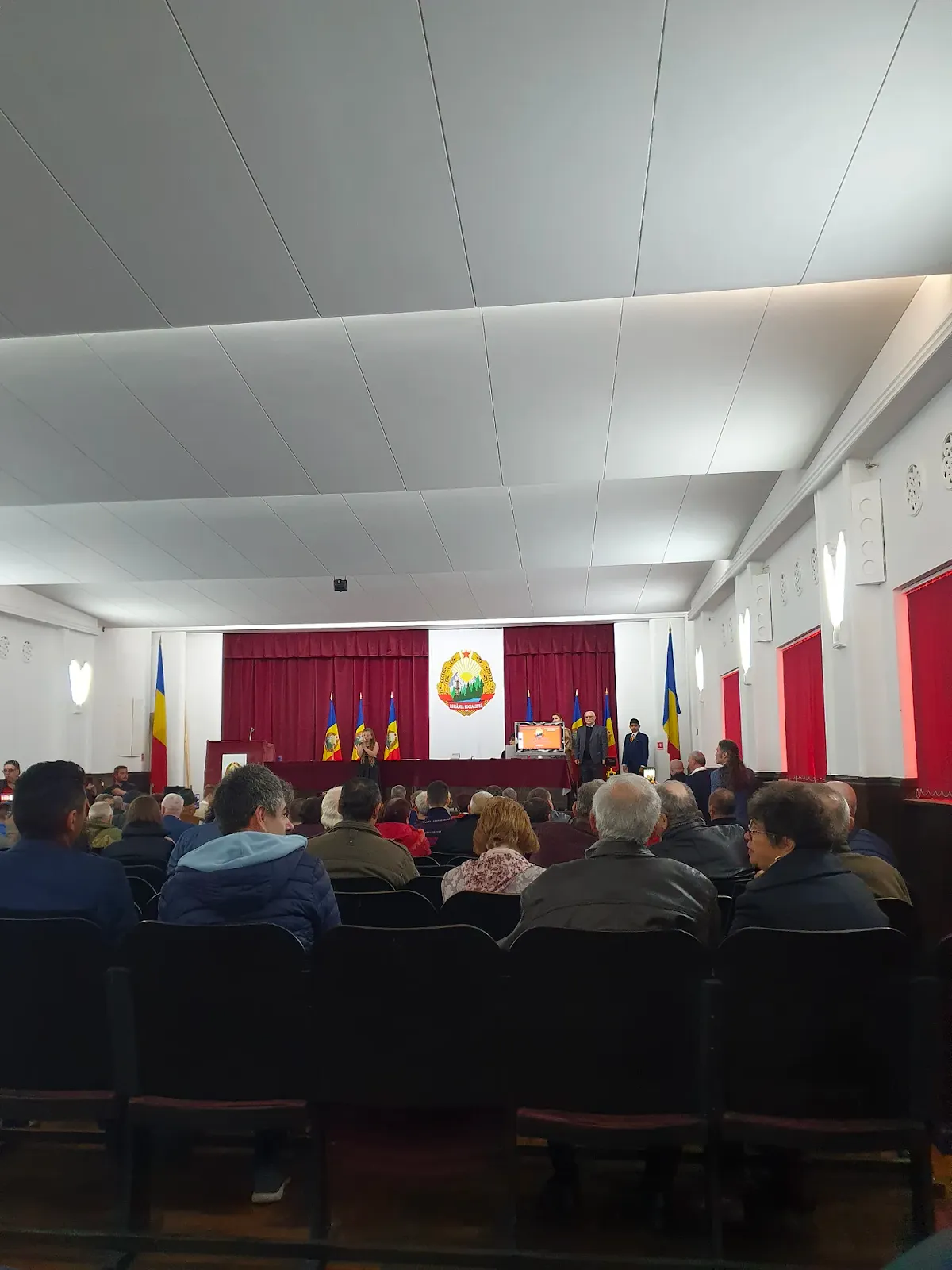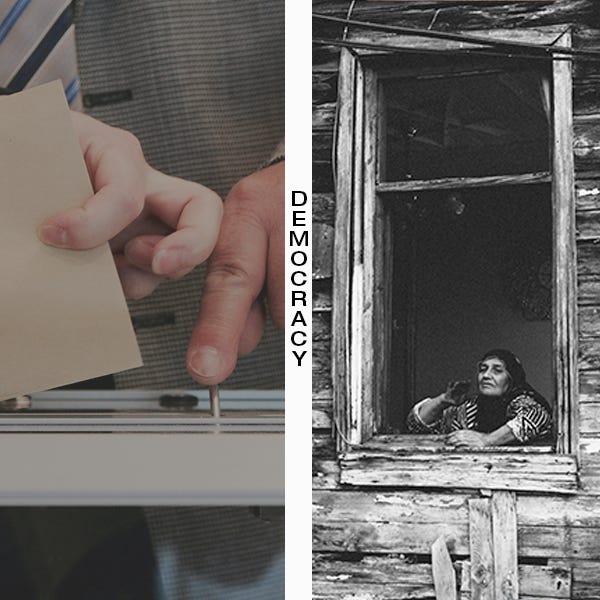
Source: Personal Archives
In 2016 the Romanian government changed the law that regulated the financing of public media channels. Before 2016 every taxpayer used to pay a fixed amount of money that was collected with the electricity bill. The budget of public media was stable and easy to predict. But under the current regulations the government decides directly the budget of the institution. It can simply reduce it without explanation, putting heavy pressure on media institutions. This is certainly not for the best, since the public radio and television were among the few remaining institutions that could provide information to the Romanian public. Today the Romanian media landscape is dominated by sensationalist entertainment shows or by the so-called “talk shows” – that is TV shows where the same people are invited every day to demonize the ruling party or the opposition. There are pro-government TV stations that viciously demonize the opposition and anti-government TV shows that take criticism of the ruling party to an extreme. This process of highly polarized media discourse started a few years ago and has evolved from bad to worst. Romanian society is extremely polarized due to this irresponsible journalistic behavior.
– Maria, you have great experience in the field of journalism. Tell us more about your career.
– I am a journalist at the public radio broadcasting company. This is where I started my career in 1990, shortly after the Revolution in 1989. Then I climbed the ladder – I became a producer and during the five years between 2005 and 2010 I was the President of the Romanian Radio Broadcasting Company.
After I finished my term I was a member of the board of the institution. Recently, starting in 2017, I resumed my journalistic activity. I currently produce and host the Serviciul de Noapte (Night Shift), an interactive radio show. I am also an advisor to the manager of the institution, providing information and advice on the company’s major projects regarding the strategy of SRR.
– Looking through the prism of your decades of experience in journalism what are your feelings and opinions regarding the change brought about by social media?
– In the past we had no smartphones and had to rely on the public phone system and I was often confronted with the situation where I had to ask someone to use the phone. That was the reality in Romania. I was always able to get the news, but I also struggled with time because I always wanted to be the first to report. This type of pressure no longer exists. It is no longer so important to be the first reporting the news because the Internet changed the paradigm. What is important is credibility. It is no longer a challenge to be the first, but the real challenge is to be reliable and trustworthy, to anticipate what might be false information, to always check the validity of the information and to maintain the trust of the public.
– What is your take on the fake news phenomenon?
– It is a widespread and common thing. Even I have been fooled a couple of times on social media. Over the years I have become very careful with sharing information on social media. I can proudly say that we never broadcast fake news, that is information where there is no evidence to back it up. We always did our best to check the validity of the information. I think it is more likely to make mistakes as an individual as we manage our private accounts on social media because we are not always checking the information we share. I really think that it should become a habit to always check information because the bigger the lie, the more people fall for it.
– The way I see it, you and other professionals are placing a high expectations on the public. But what do you think about the social media networks? What is their responsibility?
– I think it is very difficult for these platforms to manage the sharing of content. These networks were initially invested with incredibly positive powers and unfortunately, what we are witnessing now is a backlash and we suddenly discovered that we had an idealized perspective on human nature. I saw so much hate and attacks on social media. At one point I thought about deleting my Facebook account. Since I am a journalist I chose not to but I became extremely careful with my list of friends and with the types of information I share. I think that ignoring the pages and profiles of individuals that spread hate could be a reasonable solution.
– Again our discussion is shifting towards the users. But these networks were created to make a lot of money from the hate you spoke about. Isn’t the system, the rules on which they operate completely flawed?
Maybe we should make them more responsible but I think you cannot completely protect yourself from people with bad intentions. In the end it is only up to us to use social networks responsibly.
– There are actors that have the resources to use personal data and build bot networks to change the commercial and political behavior of users. Do you think your advice still applies?
– Of course not and this is why there are initiatives to limit this type of manipulation, but my opinion is that the ones wanting to break the law will always be a step ahead of the ones trying to stop them. We could have regulations but also actors that will work to evade those regulations, actors that will try to spread fake news. This is why I believe that a knowledgeable public that is able to critically assess information is the best defense. Each and every one of us has to pay attention and ensure we have reliable sources of information.
– In this context I have to ask about the Russian media which has been insanely demonized over the last couple of years. It’s now a kiss of death to appear there or to be mentioned.
– This is a very tricky situation. It is best and most comfortable, in the current circumstances, not to be eulogized by the Russian media. This is a question of how much of what is happening in the public space we are actually able to cope with. The flow of news is overwhelming. In today’s media, the flow of information comes along with manipulation and lies.
– The problem is that this environment is presented as a conflict zone between us (the Western media, mainly) and them (the Russian media). If someone would like to tone down your critical voice at one point or another they could do exactly what I just told you – cut a deal with some Russian media outlet to butter you up.
– This is an interesting perspective but I sincerely hope nothing of this kind would ever happen to anyone. It is true that the press is no longer what it used to be. Journalists are becoming more and more dependent on their financial sponsors. It is a very difficult time to be a journalist and this is true not only for Romania since we often hear out about all kinds of attacks on journalists all over the world.
– David Hasinski, a professor of media studies and a well-known journalist himself, told me that traditional media has lowered its standards and this opened up the door to trolls. What do you think about it?
– Under commercial pressure the mainstream media did what they thought the public expected of them. However, we’ve always had to face this challenge: how far can you exercise elitism and not alienate the wider public? We shouldn’t forget that keeping the content informative rather than entertaining could mean losing the public. On the other hand, how low can one go in order to keep the public close? In Romania, I have witnessed the debasement of most journalistic standards and the demise of academic quality at the postgraduate level. Strangely, having access to all sorts of information with only one click made younger people more superficial in their approach towards fact-checking.
– Do you think it could be useful to organize courses on media literacy?
– Exposure to tremendous amounts of information makes it imperative to provide media, financial, and sex education because solving math equations, writing essays, studying geography or chemistry is not going to help much in the media surroundings students will have to live in as grown-ups.
– As a journalist, you have worked in a secure environment since this is a public radio station. You talked earlier about how journalists become tied to their sponsors. What do you think is the best model for financing media?
– I think that transparency is crucial here. For the Romanian Television Company and the Romanian Radio Broadcasting Company the government provides the money. Once you know who is financing who in the media you pretty much know what you can expect. As far as the journalists are concerned, they can never be completely independent. But making sure you disclose the source of financing is the best way to strengthen credibility.
In 2016 the way the Romanian public radio and television stations were financed changed. They were no longer directly financed by the taxpayers through a special tax that was collected with the electricity bill. That type of financing provided a direct financial link to the public and made the budget stable and predictable.
– Under the current regulations your broadcast company is directly financed by the government, meaning the budget can be augmented or reduced without explanation. I remember the public radio station employees protesting the regulation change saying this would transform the public’s independent broadcasting company into the government’s obedient broadcasting company. What is your position on that?
– We weren’t expecting that. From the very beginning, that is almost a century ago, we have been financed directly by the taxpayers. And when that was altered and we began to be financed directly by the government a strong reaction appeared because we always linked editorial independence to financial independence. We are trying to adapt to this new form of financing and we are holding onto our editorial independence. It is still a public way of financing our institution since the money comes from taxpayers. For the time being, we have editorial independence. In the long run we don’t know what the future has in store for us.











